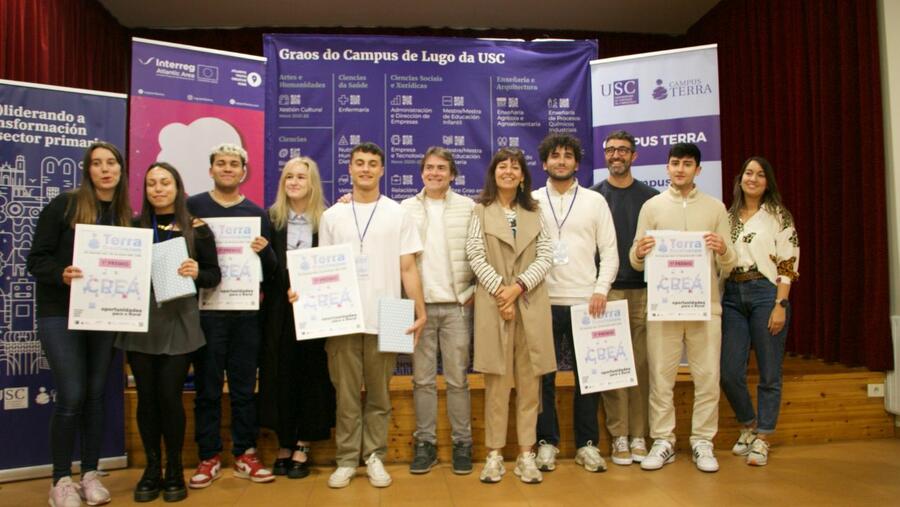BastAll, the era of the smart cane

A cane that is much more than a support point. A cane that relies on the potential of ICT to become the best ally of older people. The BastAll project, promoted by four young Business and Technology students and a psychologist, has just won the fourth edition of the Terra Creative Jam program.
The initiative promoted by the Terra Campus through the Area of Valorization, Transfer and Entrepreneurship of the USC (AVTE) in collaboration with the incubator Lug Open Factory has once again demonstrated its enormous potential to shape innovative ideas and awaken entrepreneurial vocations.
BastAll is, without a doubt, a magnificent example. Behind this project are four third-year Business and Technology students (Levi Daniel García, Gabriel Chorén, Neil dos Reís and Alexandre Carnero) and psychologist Nerea Balde. This multidisciplinary talent has been a basic pillar in creating a new generation of cane.
Because BastAll is an intelligent cane that is not only a point of support for the user. It is also an advanced tool with several assistance functions. In particular, it has a progressive and assisted lifting system that facilitates getting up or moving on uneven terrain and a stabilizer to minimize the risk of falls, so common in older people.
Solar charging system
BastAll also incorporates a GPS to monitor the owner's location at all times, an integrated light that is very useful for low visibility scenarios, and a solar charging system, ideal for guaranteeing the cane's performance without relying on an electrical outlet.
The academic background of the five project components was critical in designing a gadget that captivated the Terra Creative Jam panel for its ability to improve the quality of life of older people, especially those living in rural environments.
«Four of us, they explain, are Business and Technology students, which gives us a solid foundation in using and understanding emerging technologies and allows us to analyze how these can be integrated into viable business models. This knowledge has allowed us to design an innovative solution and, simultaneously, think about its possible implementation in the market, considering aspects such as sustainability, economic viability and social impact».
In parallel, Nerea Balde's training and vision were of great help in understanding the specific needs of older people, providing the cane with functions that really bring value to the user.
Ultimately, the team was supported by a mentor who helped the creators of BastAll to guide the ideas and find a clear and solid approach to what they intended to build.
Regarding the reasons that led them to opt for this design, they explain that «we were motivated by the challenge of improving the quality of life of the elderly in rural areas since we know that aging in these environments has particular challenges. These people often face limited access to infrastructure and medical services, and in many cases, difficulties moving safely and confidently in terrain that can be uneven».
They continue: «We didn't want to propose a solution that relied on major infrastructure changes, as that would be unrealistic. We decided to create something that could provide them with security and autonomy in their day-to-day lives while respecting their desire to continue living in the place they know and love».
As for their future plans, the team members finishing their studies in Business and Technology admit that entrepreneurship is in their sights. Some focus more on the traditional business field, while others set their sights on technology.
Whichever path they choose, with the BastAll project, they have demonstrated a horizontal view of the world around them. Technology is connected with tradition. The future and the past are walking hand in hand...
